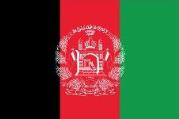|
The following article highlights the first time the High Office of Oversight
and Anti-Corruption (HOOAC) and the Independent Joint Anti-Corruption
Monitoring and Evaluation Committee (MEC) joined forces with a common
voice. Written by Kari Kay Kietzer, this article focuses on the
successes and challenges of fighting corruption in a dynamic and
kinetically active environment. The inclusion of civil society
representatives highlights the desire at all levels for transparency and
accountability in the lead up to the 2014 elections.
Successes and Challenges in
Afghan Anti-Corruption Efforts
High Office of Oversight and Anti-Corruption joined together with the
Monitoring
and Evaluation Committee to discuss Anti-Corruption in
Afghanistan.
By Kari Kay Kietzer, CJIATF-Shafafiyat, HQ ISAF.
BRASILIA, November, 2012 (HQ ISAF) – During the 15th
International Anti-Corruption Convention members of the High Office of
Oversight and Anti-Corruption (HOOAC) and the Monitoring and Evaluation
Committee (MEC) joined together for a press conference to discuss the
successes and challenges they face in fighting corruption in
Afghanistan.
Afghanistan faces many challenges in combating corruption due to the
abundance of foreign aid entering into Afghanistan. Mohammad Amin
Khuramji, Deputy Director General of Afghanistan’s High Office of
Oversight and Anti-Corruption, said that since his office was created in
2008 that criminal codes, audit codes, access to information procedures
and a prosecution unit all have been set up, and already 150
corruption-related cases have been brought against ministers, mayors and
other high ranking government officials. In addition to these successes, the HOOAC continues to focus on four
specific areas. They include: asset declaration, corruption prevention,
case tracking with law enforcement, and public awareness and education.
Successful progress in Afghanistan was also cited by Dr. Yama Torabi,
Head of Integrity Watch Afghanistan (IWA). He stated that the Ministry of Mines has recently followed
through on its promise to publish all mining contracts on the Internet
and that only one was missing from the release. Seema Ghani, Executive Director of the MEC noted that 38% percent of the
benchmark measures recommended by the watchdog Monitoring and Evaluation
Committee have been fully implemented and 32% are in the process of
being adopted, which is further cause for encouragement.
Mr. Khuramji followed up with a
positive comment stating that retaining the political will to implement
and enforce the government accountability and anti-corruption measures
will be critical to stability and success in the anti-corruption sector.
In keeping with the conference theme of “Mobilizing People: Connecting
Agents of Change”, two civil society organizations contributed to the
conversation by disclosing that the corruption situation will get no
easier with the withdrawal of NATO combat troops in 2014, but that with
the help of civil society progress can and will be made.
“Weak state institutions due to corruption are hampering the reduction of
corruption and good governance,”
said Nargis Nehan, Executive Director, Equality for Peace and Democracy.
But, the use of the national budget as a transparency and accountability tool
has been met with great success. The
Ministry of Finance has recently provided complete access to the
nation’s budget. “That’s a big achievement because when we have more
revenues and less (foreign direct) assistance, the national budget
becomes a source of accountability and transparency,” she said.
The building blocks are gradually being put into place for citizens to
monitor how the government spends the billions of dollars in foreign
assistance for post-conflict reconstruction. Achievements in fighting
corruption come from efforts not only of the HOOAC, MEC and Civil
Society, but also from Afghan’s themselves, when they reject corrupt
practices in each of their communities, anti-corruption activists and
government representatives said at a news conference on the sidelines of
the International Anti-Corruption Conference.
The true test will come when Afghanistan has elections in 2014, only
then will we see whether the political elite, who are suspected of
smuggling $8 billion from the country, support the anti-corruption
drive, said Torabi from Integrity Watch Afghanistan.
Download a copy of this article at the link below:
www.afghanwarnews.info/articles/AfghanAntiCorruptionEffortsKietzerISAF-HQ-Nov12.pdf
|


